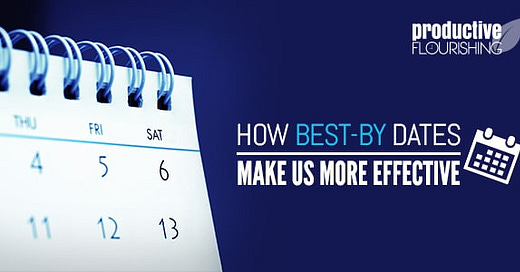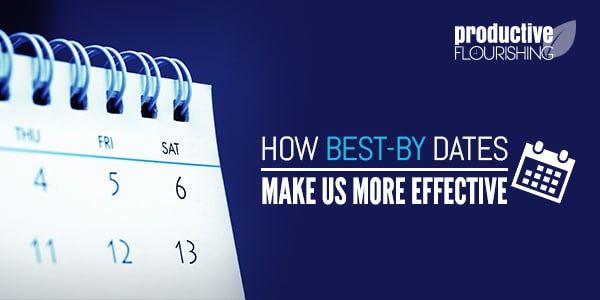How Best-By Dates Make Us More Effective
Best-by dates reduce anxiety, improve communication, and help your team deliver better results. reduce anxiety, improve communication, and help your team deliver better results.
Have you ever had someone ask you to do something, and you didn't do it "in time" because they never told you when they needed it? Have you ever been frustrated when somebody didn't reply "in time," even though you never mentioned your timeline? Doesn't sound very effective, does it?
I'm guilty of both, too.
We often hesitate to specify exactly when we need something because it feels pushy. Saying, "I need this by Wednesday," requires trusting the recipient won't think they're being micromanaged. It's especially uncomfortable setting timelines for people who aren't direct reports or when we don't want to control their creative space.
Instead, what usually happens is we don't communicate at all about timelines because that's easier in the moment. But this creates confusion and frustration. If I don't know when you need it, I can't prioritize or inform you if I can't meet your timeline. If you're unsure I'll deliver on time, you'll waste time checking your inbox and hoping I pull through.
Best-by dates are an effective way to express your timing without imposing strict deadlines. Like the best-by dates on orange juice—you might finish just before or a little after the date, and it's still fine. But wait too long, and it's spoiled.
For increased effectiveness, include a clear "why" alongside your best-by date. Instead of simply requesting TPS reports, say: "Please submit your TPS reports. Best-by date is Wednesday, so I have time to review them before forwarding them on." A when combined with a why gives recipients clear context and motivation.
Using best-by dates provides three unexpected benefits:
Better clarity about your projects and workflows, because you actively consider what's needed, and when, to move forward.
Clear follow-up timelines. If you haven't heard back after the best-by date passes, you know exactly when to follow up.
Less worrying about pending requests. Knowing the expected response timeline reduces anxiety and prevents compulsive email-checking or sitting around in team chat.
Most people appreciate knowing what's expected and when. But don't set a best-by date and secretly expect a faster response—the idea is offering clear guidance while respecting their autonomy. (Of course, a failure to acknowledge requests is a separate issue.)
Be careful not to overshare too many details about your project's backend processes. Unless someone explicitly asks or supervises you, they don't need extensive explanations, as these often overwhelm instead of support. A clear when and a succinct why are enough.
The next time you have a time-sensitive request, provide a best-by date. You'll be far more likely to receive what you need—long before it's spoiled—and your team will be that much more effective.





